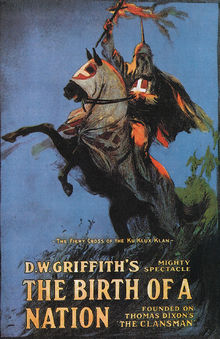I disagree with this. Yes, there were violent scenes but I thought the film emphasized the religious and spiritual aspect more as far as why Nat did what he did. Nat truly felt like he had received a calling from God to punish evil which he associated with slavery. His feeling that he was God's instrument to spread righteousness and punish the wicked seemed to be the motivation behind his rebellion. It was more than him just witnessing violence and reacting to it. It was the usage of scripture to justify slavery which he viewed as blasphemous, the violation of black women and the overall inhumane nature of slavery.
I agree with that in the sense that Nat Turner's rebellion was empowered by his faith. My problem though is that the film does not look at the slave owners' actions and thoughts through any lens
besides faith when clearly there is a conscious objection on their part to the majority of the scripture because it conflicts with their other beliefs. Nat Turner's POV is obviously limited because his education is limited to his experience on the plantation and the teachings he was able to glean from the bible. The film does a good job of fleshing out the character of Nat Turner and his POV, it doesn't do as good of a job fleshing out the POV of his enemies. The POV of the slave owners is not merely predicated on a willful misinterpretation of the bible, it's a lot deeper than that. Their children are literally indoctrinated every day to look at black people as subhuman. They learn to be threatened and offended to their very core by the idea that black people are as human as they are: that is what allows them to willfully misinterpret the bible without seeing the obvious blasphemy.
The movie presents the idea that the society of slavery is a consciously blasphemous one constructed on lies but I would argue that its society is actually constructed on deep rooted beliefs that radically skew their ability to perceive truth. They truly believe they are God's chosen people because they truly believe they are
the only people. They believe that they and they alone have been given natural superiority
and divine agency over "the savages". The white supremacist rhetoric of the 19th century - phrenology, manifest destiny, the white man's burden, etc. - espoused as much and the film did not really bother to look at just how deeply that white society internalized their superiority no matter how crazy the rationale was.







